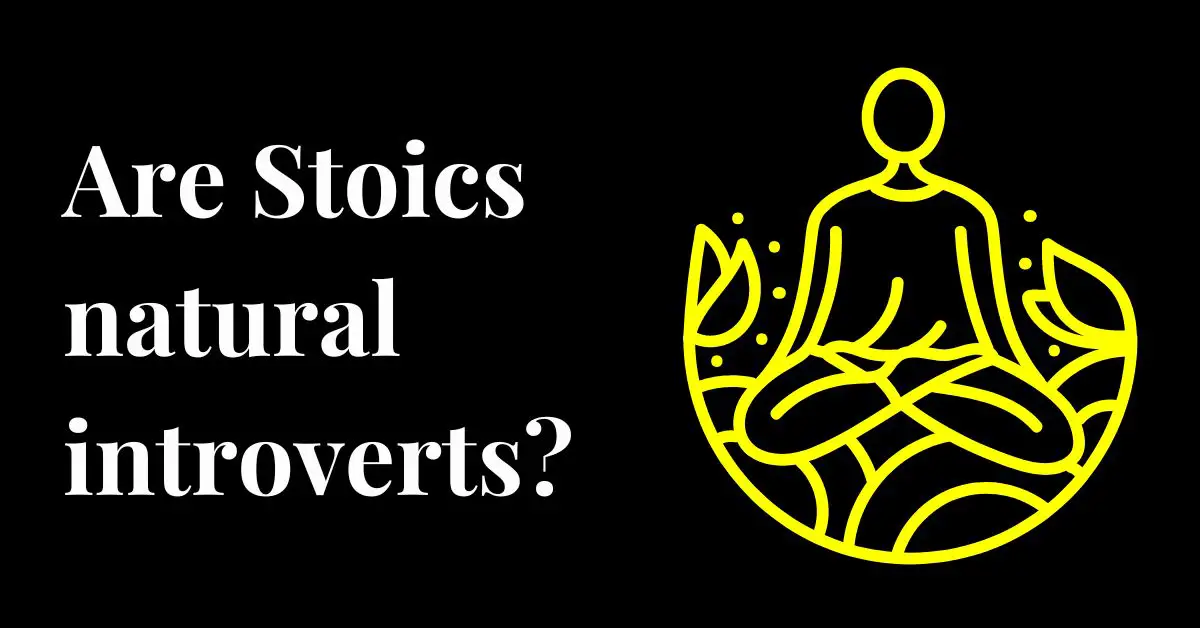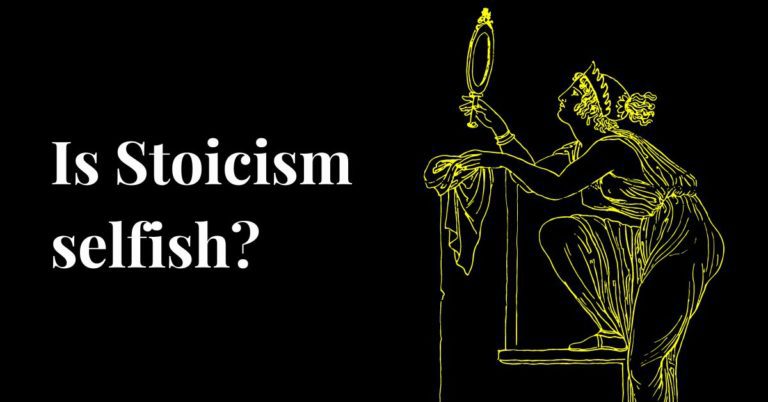Personality and Philosophy: Are Stoics more Introverted?
A question that is often raised when discussing Stoics are inherently introverted. Some argue that the focus on self-control and introspection in Stoicism aligns with the traits of introversion, while others believe the philosophy can be practiced by people of all personality types.
In this blog post, we will take a closer look at the relationship between Stoicism and introversion, and explore how the philosophy can appeal to both introverts and extroverts alike.
Table of Contents
Definition of Introversion and Extroversion
In psychology, introversion and extroversion are two of the most widely recognized personality traits.
Introverts are known to focus on one’s own thoughts, feelings, and experiences, rather than seeking external stimulation. They tend to prefer solitary activities and are often more reserved and reflective.
On the other hand, extroverts are more likely to seek social interactions and external stimulation. They tend to be more outgoing, energetic, and assertive.
Introversion and extroversion are typically measured using self-report questionnaires and personality tests, such as the Myers-Briggs Type Indicator (MBTI) and the Big Five Personality Traits test. These tests typically assess an individual’s preferences and tendencies in various areas, such as social behavior, energy levels, and decision-making styles.
It’s worth noting that introversion and extroversion are not absolute, rather they exist on a spectrum, and individuals can fall anywhere on that spectrum. Some people may have a stronger preference for introversion or extroversion, while others may be more balanced.
Are Stoics introverted?
Many argue that the focus on self-control and introspection in Stoicism aligns with the traits and characteristics of introversion. The Stoic philosophy encourages us to examine our own thoughts and emotions, and to strive for inner peace.
This can be particularly appealing to introverts, who tend to spend more time in introspection and self-reflection. Additionally, the Stoic emphasis on accepting the things that are out of our control, and focusing on what we can control, can be a powerful tool for introverts who may struggle with feeling overwhelmed by external stimuli.
The Stoic philosophy can also appeal to introverts in terms of its emphasis on solitude. Stoics often practiced meditative exercises, such as journaling and contemplation, alone, which can provide introverts with a sense of comfort and familiarity.
Can Stoics be extroverts?
While many may view Stoicism as primarily appealing to introverts, it can also be compatible with extroversion. Stoicism teaches us to strive for self-control, which can be beneficial for extroverts who may struggle with impulsivity and a lack of self-regulation.
Furthermore, the Stoic philosophy encourages individuals to focus on actions and virtue, rather than external validation and success. This can be beneficial for extroverts who may be more prone to seeking external validation and social approval.
Conclusion
In conclusion, the question of whether Stoics are inherently introverted or if the philosophy is applicable to people of all personality types is a complex one. On one hand, the focus on introspection and emphasis on solitude in Stoicism aligns with the traits and characteristics of introversion. However, it’s also clear that the Stoic philosophy can be compatible with extroversion, as it encourages individuals to strive for self-control, which can be beneficial for extroverts.
In summary, I believe that Stoicism is a philosophy that can be beneficial for people of all personality types. While it may align more with the traits and characteristics of introversion, it is not inherently limited to introverts and can be practiced by anyone who is willing to strive for inner peace.






